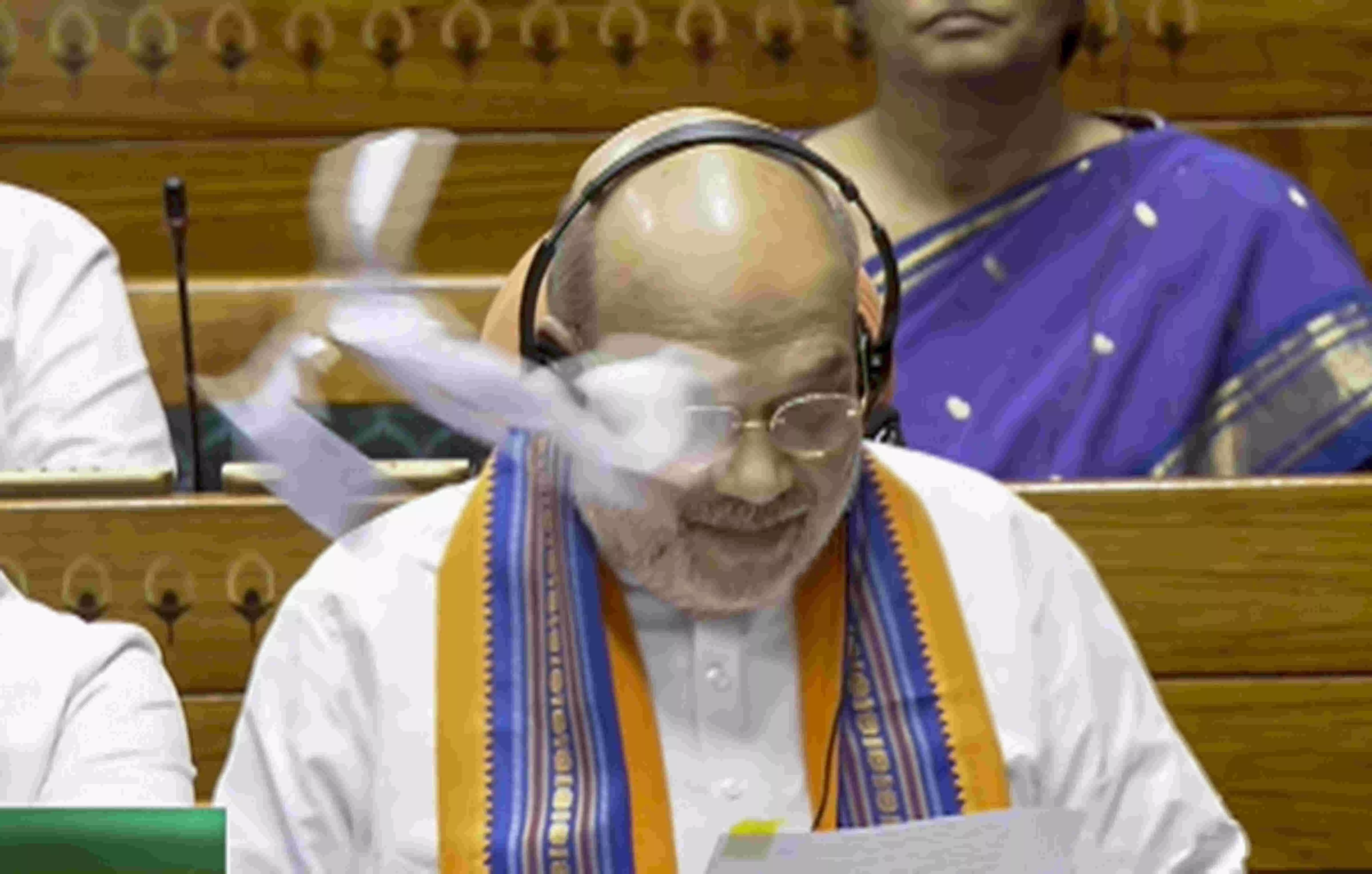Dirty ‘Cleansing’

In a democracy as vast and contested as India’s, the line between law and politics is always fraught. The storm in the Lok Sabha on Wednesday, when Union Home Minister Amit Shah tabled three controversial bills, shows precisely why. At the heart of the turmoil lies the Constitution (One Hundred and Thirtieth Amendment) Bill, 2025, which proposes that the Prime Minister, Chief Ministers, and other ministers must resign—or be automatically removed—if they are held in custody for 30 consecutive days on serious criminal charges punishable with at least five years in prison. Flanking it are the Government of Union Territories (Amendment) Bill, 2025 and the Jammu and Kashmir Reorganisation (Amendment) Bill, 2025, extending the same logic to Union Territories and J&K.
The optics could not have been more dramatic. Opposition members tore copies of the Bill and hurled them toward Shah, slogans reverberated in the chamber, and the House had to be adjourned multiple times before the Bills were referred to a Joint Committee of Parliament. This raucousness, however, should not obscure the fundamental questions raised by the legislation. On the surface, the move appears rooted in common sense: why should a minister under serious charges, cooling heels in jail for a month, continue to hold high office? Shashi Tharoor of the Congress broke ranks to echo this line, calling it a matter of “common sense.” Indeed, recent history—from Arvind Kejriwal’s months-long incarceration while still the Chief Minister of Delhi, to the arrests of ministers in Jharkhand and Tamil Nadu—highlights the awkward spectacle of governance “from jail.”
Yet what appears “common sense” may be deeply problematic when translated into law. As Opposition MPs such as Asaduddin Owaisi and Manish Tewari pointed out, the danger lies not in the principle of accountability but in the potential for abuse. In a political landscape where investigative agencies are frequently accused of selective action and partisan targeting, the new provisions could be weaponised to topple governments. If arrest alone—not conviction—is enough to unseat an elected leader, then agencies like the Enforcement Directorate, CBI, and police forces will effectively acquire the power to rewrite electoral mandates. This is no idle concern. The recent spate of arrests of Opposition leaders—Hemant Soren in Jharkhand, Kejriwal and his ministers in Delhi, Senthil Balaji in Tamil Nadu—have already generated accusations of “politics by prosecution.” If the Bills pass in their current form, the executive branch of government, armed with pliant agencies, could unilaterally dislodge rival chief ministers and even challenge the authority of a Prime Minister from another political formation. This strikes at the very heart of federalism and the separation of powers, both basic features of the Constitution. Owaisi’s description of a “police state” may be hyperbolic, but the concern is not unfounded. In a democracy, an arrest does not equal guilt. The presumption of innocence remains central to justice. By equating custody with disqualification, the proposed law undermines this principle. The question is: What prevents a ruling party from ensuring that a rival spends 30 days in jail on flimsy grounds, thereby removing them without the bother of an election?
The issue is not whether leaders should step down in such circumstances—it is whether the state should be empowered to make that decision automatic, regardless of context or judicial progress in the case. Ultimately, the government’s pitch that the Bills will cleanse politics must be weighed against the corrosive possibility of weaponising arrests. The solution lies not in short-circuiting democratic safeguards, but in strengthening due process—fast-tracking trials of elected officials, creating impartial oversight mechanisms, and cementing political cultures where resignation is a matter of honour, not compulsion. By rushing toward a legal fix that prioritises appearances over principles, the government risks sowing a greater crisis wherein the jail gate will decide who governs India. That would not be a moral cleansing of politics, but its slow undoing.



